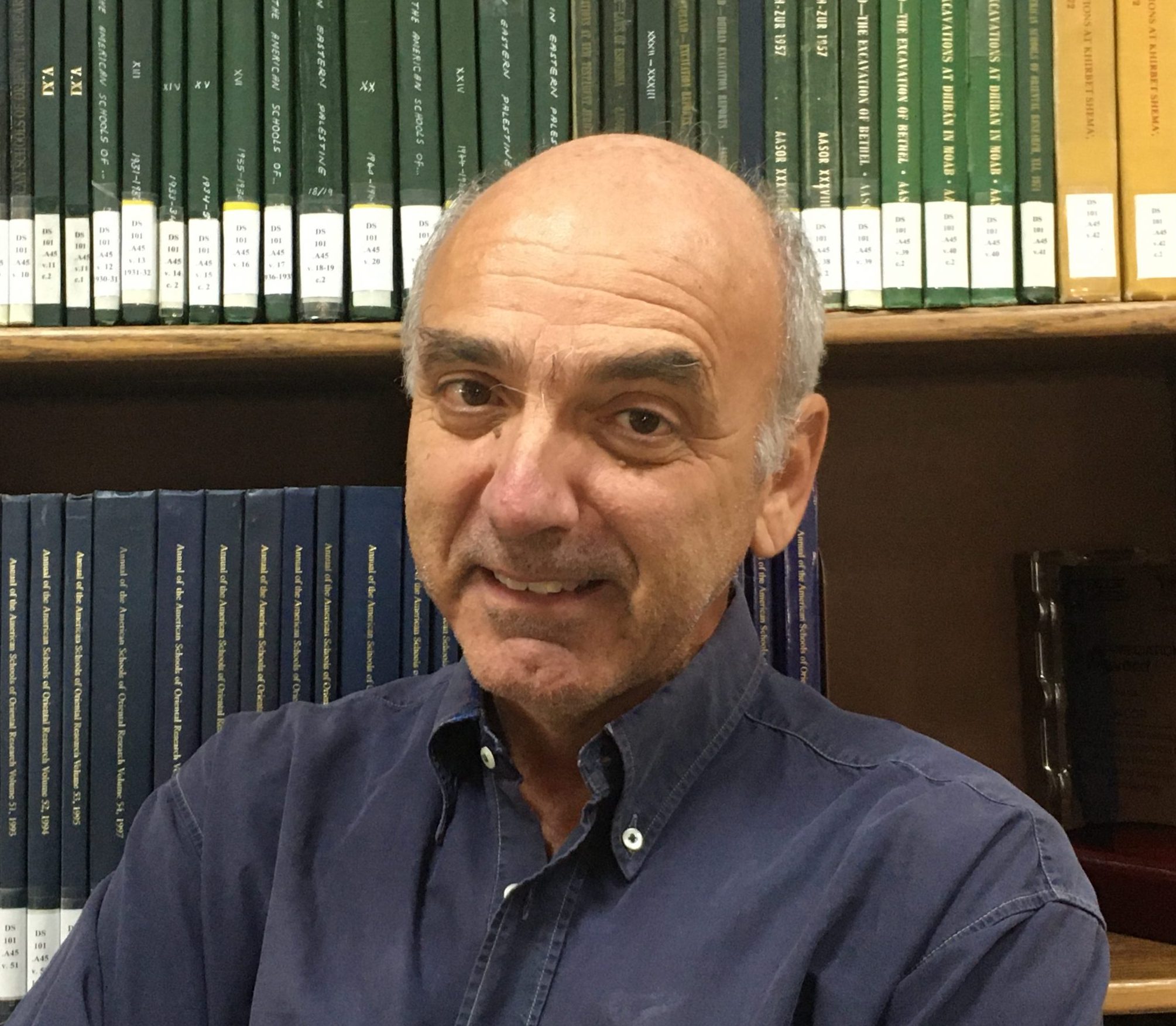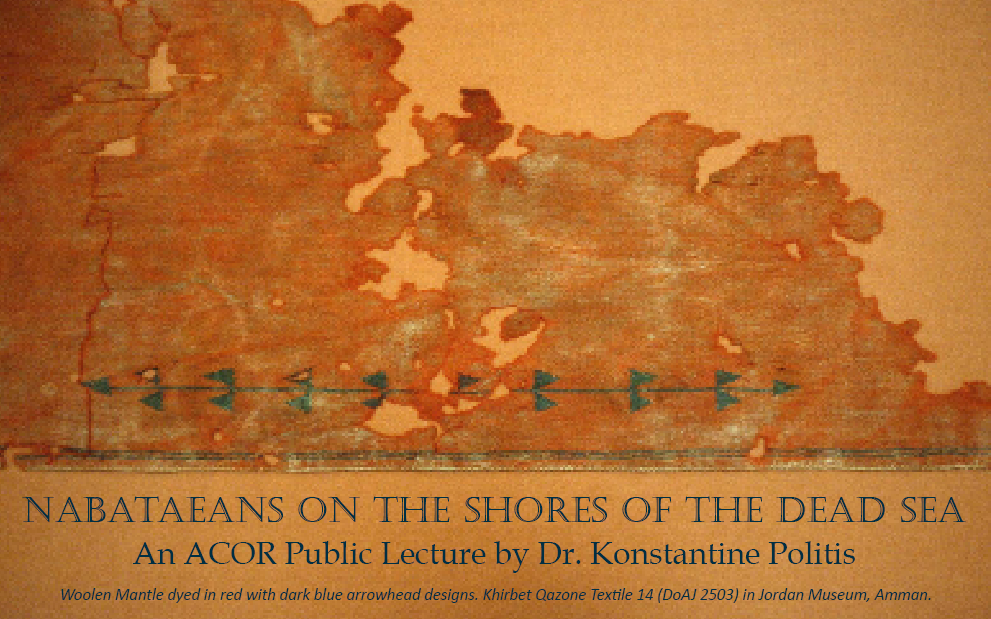ACOR Proudly Presents:
“Nabataeans on the Shores of the Dead Sea”
An ACOR Public Lecture by Dr. Konstantinos D. Politis on March 10, 2020
About the Lecture:
Ancient sites that have recently come to light on the Dead Sea littoral reveal what life was like for the average Nabataean some two thousand years ago. Ancient texts also refer to these communities and the close relations that they had with their immediate neighbors to the northwest, even to the extent of intermarriage. The Dead Sea region will be discussed in the larger context of the evolving Nabataean realm. The site of Khirbet Qazone will be given special attention, as it is the focus of K.D. Politis’ current research supported by an ACOR CAORC fellowship. The cemetery at Khirbet Qazone included well-preserved textiles, along with other objects dating from the 1st to 3rd centuries A.D. There is also an early Christian phase (4th to 6th century), which includes a church.
About the Lecturer:

Dr. Konstantine Politis is an archaeologist educated in Greece, the United States, Britain and Belgium. His early fieldwork was in Greece and Liechtenstein. From 1988–2011, he was based at the British Museum, which was the principal sponsor of his excavations. The focus of his work is the Late Antique and early Islamic periods in the east Mediterranean and Arabia. Dr. Politis has worked in Jordan for over 35 years, and his main archaeological projects include the Sanctuary of Lot at Deir ‘Ain ‘Abata, the Masna al-Sukkar and Khirbat ash-Sheikh ‘Isa at Ghawr as-Safi, and Khirbet Qazone. Currently he is on a second ACOR-CAORC Fellowship to conclude the studies of that site for publication. As chairperson of the Hellenic Society for Near Eastern Studies, Dr. Politis initiated the Museum at the Lowest Place on Earth in Jordan, led excavations at Ra’s al-Hadd in Oman, and coordinated a documentation training program for mosaics in Syria, as well as an exhibition on Hellenistic Syria in the Hama Museum.
For more content such as this, please subscribe to the ACOR Blog and ACOR Youtube account.
A recent lecture given in Arabic may be found here.
Learn More:
- For a written summary of Dr. Politis’ current research, please read his February article on the ACOR Blog.
- Click here to watch a past ACOR lecture by Dr. Politis, called “The Origins of the Sugar Industry in Jordan: Latest results of the Ghawr aṣ-Ṣāfī Project.”
- To explore tourism opportunities in the Southern Ghawr, please click here to be taken to the “Visit Safi,” a SCHEP-supported tourism micro-enterprise.

